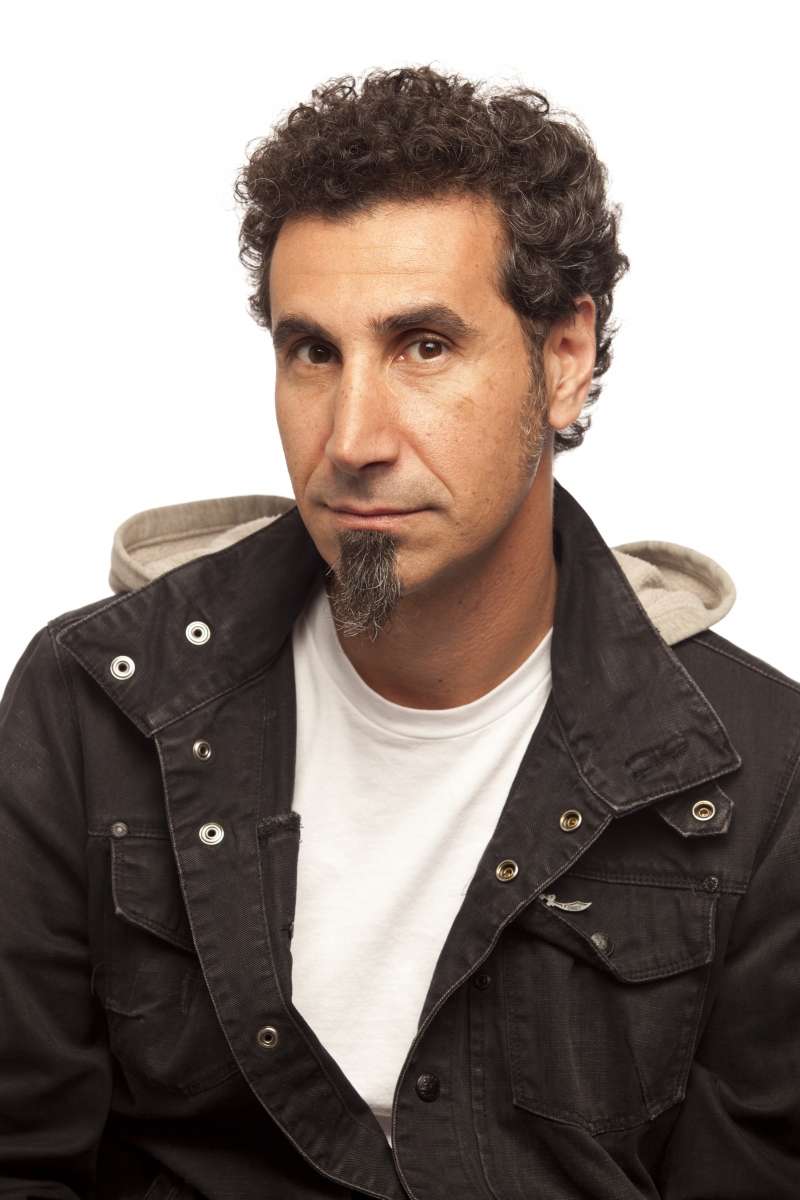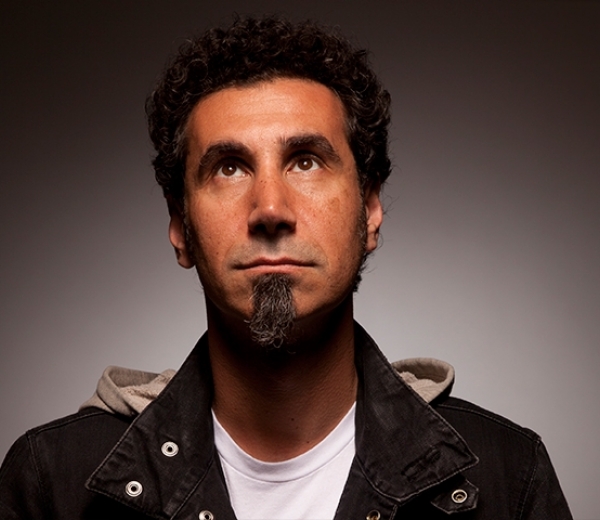|
Photo: Greg Watermann
|
In 2002, Tankian and Rage Against The Machine guitarist Tom Morello co-founded a non-profit political activist organization called Axis of Justice. Serj has spoken about genocide and the need for justice on many occasions: “I think it's about the necessity to bring justice to this issue. Additionally, it is also to bring focus and attention to genocide in general. We've seen it happening today, we've seen it happening in recent history, in the last 15, 20 years... it's still occurring. Irrespective of the Armenian Genocide, the Holocaust, Darfur and Cambodia, all this stuff is still occurring. So that's important to me, because it's modern, it's not World War I, it's now.”
On August 12, 2011 Tankian was awarded the Armenian Prime Minister's Medal for his contribution to the recognition of the Armenian Genocide and the advancement of music. Serj makes his home in Los Angeles, California and Auckland, New Zealand, with his wife Angela and his baby boy, Rumi.
As Tankian chronicles in Carla Garabedian’s 2007 documentary “Screamers,” his maternal grandfather Stepan Haytayan was a survivor of the Armenian Genocide from Efkere in Gesaria (present-day Kayseri in central Turkey). His grandfather lost most of his family in the massacre that took place in that town: “I've heard first-hand the stories of my grandparents’ survival and the horrific things that they've seen,” Tankian has stated.
In “Screamers,” the scenes where Serj and his grandfather discuss what happened are heart wrenching. All across Anatolia, Armenian men were disarmed and shot, while the women and children, who were not kidnapped and raped or killed, were put on death marches.
Stepan Haytayan ended up in an American orphanage in Greece and eventually made his way to Lebanon. Without the American missionaries who ran the orphanage, Tankian’s family would not have survived.
Tankian’s maternal grandmother Varsenig also survived the massacres: a Turkish mayor put his life on the line and hid her and her family. Like some other officials in the Ottoman Empire, this righteous Turk refused to carry out the government’s orders to kill or deport Armenians. In some cases, the Ottoman government executed these saviors for defying authority.
Tankian’s paternal grandparents Nazaret and Vartouhi survived the Genocide thanks to the fact that they both worked on the Berlin-Baghdad railway, being constructed by Turkey and its ally Germany in order for the latter to gain access to the Persian Gulf. Some Armenians were literally worked to death, but others managed to persevere despite being forced to perform excruciating manual labor.



